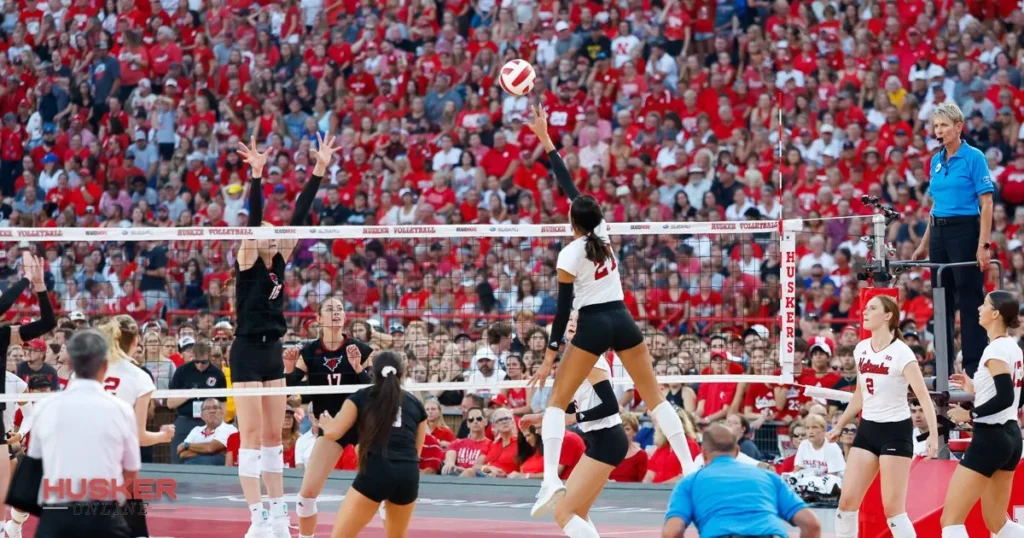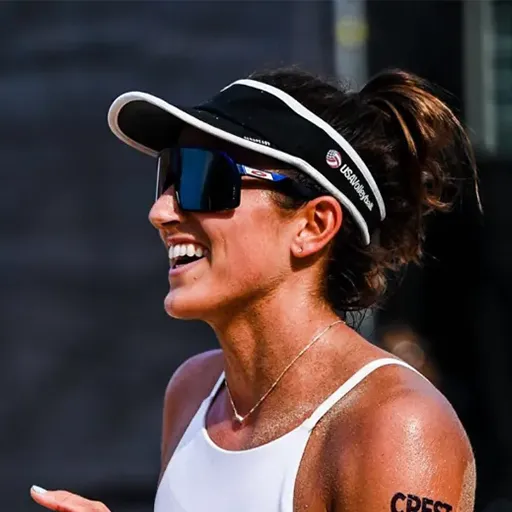Why do we yell at refs?

I would like to draw our attention to the refs of today’s sports. Why? Well, because they don’t get much attention. When was the last time you saw Sports Center post a reel about a ref making a GREAT CALL? Never. I’ve had Instagram for almost 12 years and I have never seen a video like that.
We rarely think about the referees when we watch college or professional sports. They are only deemed relevant to us when they have to make a call… And when that time comes, that call could either leave you jumping up and down with excitement or, like some people, ripping the TV off their wall.

As I look back at my career thus far, from my club days to high school and college and into the professional world, I am pretty disgusted with the things that I’ve said to refs. The words that exited my mouth were never “You’re the best ref ever” or “Hey, thank you for reffing that match. Have a great rest of your day.” They were more along the lines of, “**** You,” “Are you ****** kidding me?” or “How much are they paying you?” Sometimes, I would try to be discreet and say these things under my breath, but most times, they 100% heard me.
We all get caught up in the moment, no doubt about it. Whether we are athletes ourselves, parents watching our kids play, or just fans of the team, the passion to win is inside of us all. But it’s time we ask ourselves: is our drive to win overshadowing our focus on being good people with strong character? I have the same passion for winning as I did when I was 7 years old, playing on my first club team. The desire to win will never go away, but we often excuse our behavior behind the scapegoat of “competitiveness.”

The job of a ref is no different than ours as players. Just as I get up every day and work hard to be the best athlete I can be to succeed, we should expect that refs are doing the same. However, there’s a slight difference… I don’t think there are a lot of jobs out there where your coworkers are the angriest, sweatiest, most deranged people screaming the worst things to your face periodically throughout your shift! I really can’t think of another job like it!
While I have always exchanged pleasantries with refs in the past, I am now eager to go beyond that and truly get to know one on a personal level. It just so happened that the next person reffing my PVF match a couple weeks ago versus Atlanta (February 9th) was Suzanne Lowry, who has been reffing my matches for years on the AVP and FIVB tours. I decided to talk to her after the match where she agreed to do an interview with me a couple days later. It was about time I got to know her story and the inside scoop of the life of a ref!
When I first gave Suzanne a ring, I started by simply asking her, “What inspired you to become a professional referee?”
Suzanne’s journey into the world of professional reffing started as a side gig as a ref in summer rec leagues. Despite having a full-time job after graduating from the College of Charleston, Suzanne continued to ref on the side, and her love for the sport only grew stronger. During a weekend trip to watch AVP Chicago with her friends, she met one of the refs, Keith, now her husband. He was the one who encouraged her to take her reffing career to the next level.

Today, Suzanne is a full-time referee, living her dream and inspiring others to follow their passions. She has been reffing professionally for over 10 years, currently in the BIG10, SEC, ACC, and on the AVP and FIVB tours. Reffing has taken Suzanne worldwide to 19 countries on 6 continents… and it all started with a simple love for the game.
This led to my next question, which many athletes, coaches, and fans often wonder about: “Why? Why do you ref? What is your favorite part about being a ref?”
I loved her response: “I love being part of a game that I’ve always loved, and I love being a part of the highest level this game is played. Whether it’s the AVP, BIG 10, or FIVB, I am so lucky I get to do what I do and see these amazing matches, seeing players creating new techniques that are new to watch; you’re getting to witness the change in the game firsthand. And I love challenging myself to constantly get better.”
When that came out of her mouth I thought, “Wow, that sounds like me!” If someone asked me, “What is your favorite part about being a professional indoor/beach athlete?” I would include those three statements. 1) I love the game. 2) I love getting to play at the highest level. And 3) I love working hard and getting better daily.”
Once I learned more about her story, I dove a bit deeper into questions about the job. “How do you prepare for a match and ensure you’re mentally and physically ready?”

It’s not talked about a lot nor portrayed anywhere on social media, and when we don’t see that, we create stories in our heads. We think, oh, they probably just got out of their car and hopped up on the stand… but the amount of mental preparation, studying, classes, training, and pre and post-game debrief sessions that Suzanne does shows me that they put just as much time as we do to prepare.
I’ve only ever seen Suzanne up on the stand, but here are a couple of things she shared with me that I would have NEVER known about ref prep:
- Since she is involved in so many leagues, whether it’s the AVP, FIVB, PVF, or NCAA, Suzanne is continually reviewing rulebooks, guidelines, and protocols, which vary between each league.
- She watches film. In each game, her team of refs will debrief before and after, discussing what to anticipate, what they think each person did well, and what they can work on to improve for the next match.
Like us athletes, Suzanne and her colleagues analyze their work and look for improvement. They aren’t just packin’ bags post-match and walking out the door!
I proceeded to ask her, “Can you walk me through making a difficult call during the game? How do you handle a situation where a player or a coach is not respecting your authority?
Suzanne had an amazing approach to this question: “I try to sort of defuse that from the beginning. Sometimes, you know who is going to be on the court… you know [certain] coaches have idiosyncrasies… some coaches do not want to talk before the match, and if you know those sort of things, [we] share that information with each other… I always try to say hello or do a well-timed smile to make things at ease before we get started; check the ball pressure and ask if the nets are okay… it’s the little things.”

I learned Suzanne does the work upfront before the match even starts. She does this through acts of kindness that might go unnoticed by many but, looking at it now, does so much good when she’s in the thick of battle above the court. All of these preconceived gestures show she cares and is ready to give her best to us when she blows that first whistle. As athletes, that’s all we can ask for.
I hope that we can pay more attention to the refs and realize that this is a job that they work hard at. Next time you play a game, or before you start, think to wave, say hi, or even ask how their day is going. They are on the job and their names are just as important as the stars that grace the fields and courts they ref on. At the end of the day, without people, there are no sports, and refs are people too.
Next time you think of cussing out a ref, think about their story. Think about Suzanne’s story. Think about how she is just like you, not perfect, but striving for excellence. Ask yourself, “How am I treating ALL the people around me? We treat the rich and famous with utmost respect and dignity, but how are we treating the ones that can be so easily overlooked in today’s culture? I’ve learned that good character is revealed in how you treat people because every person has a purpose and a story to share.
Getting to know Suzanne was such a blessing, and I’m excited to see her around in the PVF. In the years to come, instead of waving or saying “hi” when I see her, I can stop and ask, “How are you, and how is your family?”
-SS

Sarah Sponcil is a prominent figure in the world of professional volleyball, known for her exceptional skills, work ethic and achievements on the court. Born on August 16, 1996, in Phoenix, Arizona, Sponcil began her volleyball journey at the age of three and has been showcasing her immense talent and dedication to the sport ever since.
Garnering three high school state championships in Arizona, and two NCAA national championships at UCLA, Sponcil’s career reached new heights when she represented the United States at the 2020 Olympic Games. At 24 years of age, Sponcil became the second youngest beach volleyball player to ever represent Team USA in the Olympic Games and, together with her partner Kelly Claes, were the youngest beach volleyball team to ever represent Team USA in the Olympic Games.
Following her Olympic success, Sponcil has continued to excel as a professional volleyball athlete, earning numerous accolades and recognition for her prowess as both an indoor and beach volleyball player. Her versatility, athleticism, and relentless determination has solidified her reputation as one of the top players in the sport and make her a force to be reckoned with on any volleyball court.
Off the court, Sponcil is known for her humility, work ethic, and commitment to her faith, family, and desire to inspire the next generation of athletes. She serves as a role model for aspiring volleyball players worldwide, demonstrating that with passion, perseverance and dedication, anything is possible in the world of sports.
Search Posts
Categories
Latest Releases
Beyond Skill: What does leadership mean to you?
Championship Team: Lessons from Faith & Sports
I’ll Be Home For Christmas
Search Posts
Categories
Latest Releases



